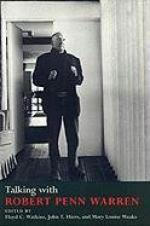|
This section contains 411 words (approx. 2 pages at 300 words per page) |

|
Mr. Warren's poetry has made itself felt, for some five decades, as a moral presence and a moral pressure of an unusual kind, and he is read by people who are genuinely interested in poetry. Since Promises (1956) the poems have grown steadily more impressive. He is not among the great originals of American poetry, yet, in their power to astonish, his poems resemble Melville's: there is the same tested and life-weary appeal to experience, with the sense of a fierce self-command maintained against all odds.
The modernism in Mr. Warren's poetry always seemed a displaced moralism. He refused to borrow, from Eliot or anyone else, new ways of organizing a poem: in this he was at several removes from the [Allen Tate] of "Ode to the Confederate Dead." What gave his early pieces the modern look was their use of such honorific abstractions as Time, and Hope, and...
|
This section contains 411 words (approx. 2 pages at 300 words per page) |

|


